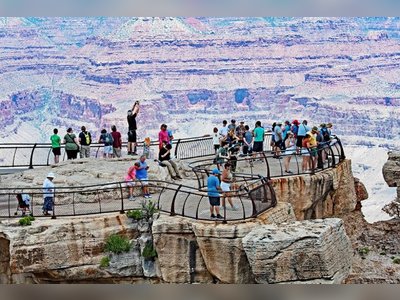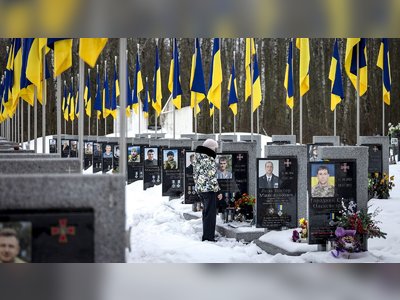
Investigation on Diego Maradona's death: 'abandoned by his health team'
Diego Maradona died on November 25, 2020, at the age of 60, when he was recovering from an operation for a hematoma on his head.
The legendary Argentine footballer Diego Maradona was "abandoned to his fate" by the health team that treated him in the days prior to his death, on November 25, 2020, with "inadequate, deficient and reckless treatment", according to a report.
The medical board that investigates at the request of justice the causes of death determined in a 70-page document that Maradona "began to die at least 12 hours before" the moment he was found lifeless in his bed and suffered a "prolonged agonizing period".
The report was prepared by an interdisciplinary board of 20 experts convened by the Attorney General of San Isidro, on the outskirts of Buenos Aires, which seeks to determine whether the death of Diego Maradona could have occurred due to the abandonment of a person or wrongful death (involuntary ).
The Argentine '10' died on November 25, at the age of 60, alone in his bed in a rented house in a private neighborhood in the north of Buenos Aires, where he was recovering after an operation for a bruise on his head, and where he was supposedly with home hospitalization.
The report of the medical board concludes that the captain of the Argentine national team champion in Mexico-1986 "would have had a better chance of survival" if he had had adequate hospitalization and in a multipurpose healthcare center.
"Considering the clinical, clinical-psychiatric condition and the poor general condition, he should have continued his rehabilitation and interdisciplinary treatment in an appropriate institution," the board insisted.
The experts indicated that Diego Maradona "was not in full use of his mental faculties, nor in a position to make decisions about his health" at the time he left the Olivos clinic, where he had undergone head surgery.
In the previous days, the former Napoli and FC Barcelona star had insisted on leaving the clinic and had refused to be taken to another health center, according to his GP, Leopoldo Luque, one of those investigated.
Among the conclusions, the board maintains that "the signs of life risk that it presented were ignored" and nursing care in these last weeks "is plagued with deficiencies and irregularities" and with a lack of controls.
"The treating medical team fully and thoroughly represented the possibility of the fatal outcome with respect to the patient, being absolutely indifferent to that question, not modifying their behaviors and medical / care plan drawn up, maintaining the aforementioned harmful omissions, abandoning 'to chance' the state of health of the patient ", accuse the experts in the report.
- The last days -
Diego Maradona had been operated on for a bruise on his head on November 3. Shortly before, on October 30, he attended the celebration of his 60th birthday in poor health at the Gimnasia La Plata stadium, whose team he directed.
That day at the La Plata stadium, 60 km south of Buenos Aires, was the last time that he appeared in public who had been acclaimed by millions of fans around the world.
Witnesses claim that he suffered from addictions to alcohol and psychotropics. After his retirement he was several times on the brink of death from heart ailments and drug use.
In the judicial case opened for the death of '10', the psychiatrist Agustina Cosachov, the neurosurgeon and general practitioner Leopoldo Luque and the psychologist Carlos Díaz, as well as a nurse, a male nurse, and a doctor are investigated.
The penalties in Argentina for abandonment or wrongful death range from five to 15 years in prison.
Sebastián Sanchi, who was a spokesman for Maradona, commented to AFP that with this report "clearly the (medical) board is saying that at least things were not done well for them."
Amid recriminations and accusations for the attention given to Maradona in his later years, another parallel case is advancing to settle the disputed inheritance between his five children, his brothers and the last legal representative of the '10', Matías Morla.
The medical board that investigates at the request of justice the causes of death determined in a 70-page document that Maradona "began to die at least 12 hours before" the moment he was found lifeless in his bed and suffered a "prolonged agonizing period".
The report was prepared by an interdisciplinary board of 20 experts convened by the Attorney General of San Isidro, on the outskirts of Buenos Aires, which seeks to determine whether the death of Diego Maradona could have occurred due to the abandonment of a person or wrongful death (involuntary ).
The Argentine '10' died on November 25, at the age of 60, alone in his bed in a rented house in a private neighborhood in the north of Buenos Aires, where he was recovering after an operation for a bruise on his head, and where he was supposedly with home hospitalization.
The report of the medical board concludes that the captain of the Argentine national team champion in Mexico-1986 "would have had a better chance of survival" if he had had adequate hospitalization and in a multipurpose healthcare center.
"Considering the clinical, clinical-psychiatric condition and the poor general condition, he should have continued his rehabilitation and interdisciplinary treatment in an appropriate institution," the board insisted.
The experts indicated that Diego Maradona "was not in full use of his mental faculties, nor in a position to make decisions about his health" at the time he left the Olivos clinic, where he had undergone head surgery.
In the previous days, the former Napoli and FC Barcelona star had insisted on leaving the clinic and had refused to be taken to another health center, according to his GP, Leopoldo Luque, one of those investigated.
Among the conclusions, the board maintains that "the signs of life risk that it presented were ignored" and nursing care in these last weeks "is plagued with deficiencies and irregularities" and with a lack of controls.
"The treating medical team fully and thoroughly represented the possibility of the fatal outcome with respect to the patient, being absolutely indifferent to that question, not modifying their behaviors and medical / care plan drawn up, maintaining the aforementioned harmful omissions, abandoning 'to chance' the state of health of the patient ", accuse the experts in the report.
- The last days -
Diego Maradona had been operated on for a bruise on his head on November 3. Shortly before, on October 30, he attended the celebration of his 60th birthday in poor health at the Gimnasia La Plata stadium, whose team he directed.
That day at the La Plata stadium, 60 km south of Buenos Aires, was the last time that he appeared in public who had been acclaimed by millions of fans around the world.
Witnesses claim that he suffered from addictions to alcohol and psychotropics. After his retirement he was several times on the brink of death from heart ailments and drug use.
In the judicial case opened for the death of '10', the psychiatrist Agustina Cosachov, the neurosurgeon and general practitioner Leopoldo Luque and the psychologist Carlos Díaz, as well as a nurse, a male nurse, and a doctor are investigated.
The penalties in Argentina for abandonment or wrongful death range from five to 15 years in prison.
Sebastián Sanchi, who was a spokesman for Maradona, commented to AFP that with this report "clearly the (medical) board is saying that at least things were not done well for them."
Amid recriminations and accusations for the attention given to Maradona in his later years, another parallel case is advancing to settle the disputed inheritance between his five children, his brothers and the last legal representative of the '10', Matías Morla.










